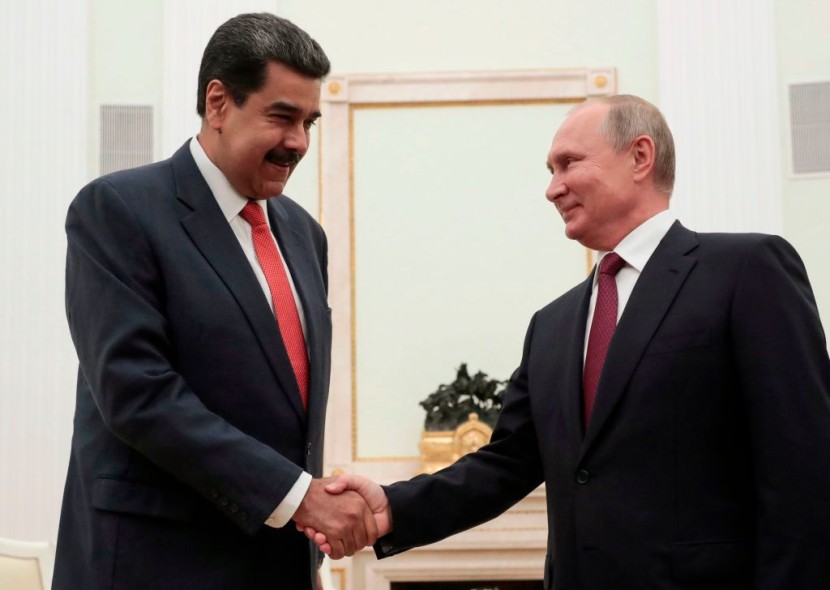
Russia and Venezuela are working on expanding oil and energy that are a target of sanctions of the western alliance that has not been lessened.
This pact has been cooperation on economic, political, and defense ties in the last two decades. Both countries have been sanctioned by the US, which has tried to install its puppet regime in Caracas but failed.
Depriving the US of Gas, Oil
Russian President Vladimir Putin and Venezuelan leader Nicolas Maduro gave guarantees to extend cooperation in oil.
Both leaders want to negate Washington and its allies by bypassing sanctions in finance and logistics, as indicated by Venezuelan Foreign Minister Carlos Faria, reported Sputnik News.
Faria outlined they will be working on co-projects with Russian companies that would lead to ways to nullify the mechanisms that the west uses about finance in particular, as he spoke to Minister Sergei Lavrov in Moscow on Monday, citing Republic World.
Caracas has condemned the wayward US sanctions on Russia, which only boomeranged back. Now Washington has to depend on an adversary who may not help Americans and Europeans paying for the ambition of their leaders.
The Venezuelan foreign minister was optimistic that Russia and Venezuela could bypass the long-term effects of western sanctions. All prevailing conditions are the product of Washington staggering their oil industry, noted Mehr News.
Sanctions have hampered investments, finance, loans, and industry buying equipment and spare need.
BRICS Finance Systems To Depose the Petro-Dollar
Alternative finance systems are developed by Moscow, Beijing, and New Delhi to bypass blockading Moscow. The Biden administration is ignored by more states favoring Moscow over a hegemonic US regime.
US clout is slipping, and only the EU follows; no threats are heeded by countries turning away from America. The US is becoming less convincing due to how Moscow seems unaffected.
Faria supported Russia's stand on the US-sponsored proxy war in Ukraine, and he added the problem was the US-supported Ukraine forces were beaten in the LPR. He refuses to negotiate for peace and is egged on by Washington and its allies to fight.
The Kremlin wants peace on their terms not dictated by Ukraine, but Moscow has their best interests for them.
As an ally, he thanked Vladimir Putin for bringing order and support to national processes in Caracas. Russia's role as mediator ended the chaos and talked with those opposed to Maduro, who was backed by the US and had to stand down.
Lavrov cited the better situation in Venezuela and pledged Moscow would help its ally in sustainable development. The Russian official said that both nations would focus on fields of politics, economics, trade, and other vital exchanges.
It includes areas of medicines, energy, industrial, transport, and military technology, one highlight is space cooperation and a GLONASS satellite system in the country.
A coup was attempted by the US in 2019 to unseat Nicolas Maduro but failed, and sanctions followed. Other nations like China and Iran, Russia helped ease the hardship.
Russia and Venezuela are partners to negate the long-term effects of western sanctions, improving energy cooperation that will benefit both.
While the Biden administration will lose more oil sources, including Iran and Saudi Arabia, it leaves the US in dire straits with a recession and inflation due to its actions, as its sanction is killing the US economy.
Related Article : Maduro Enters Military Pact With Russia, Disregards Biden's Desperate Attempt To Isolate Moscow








